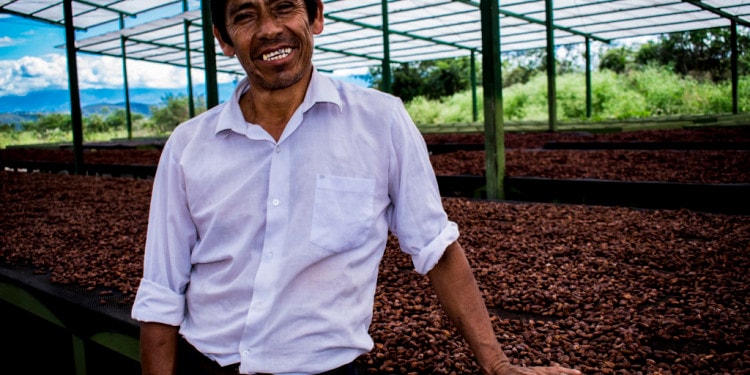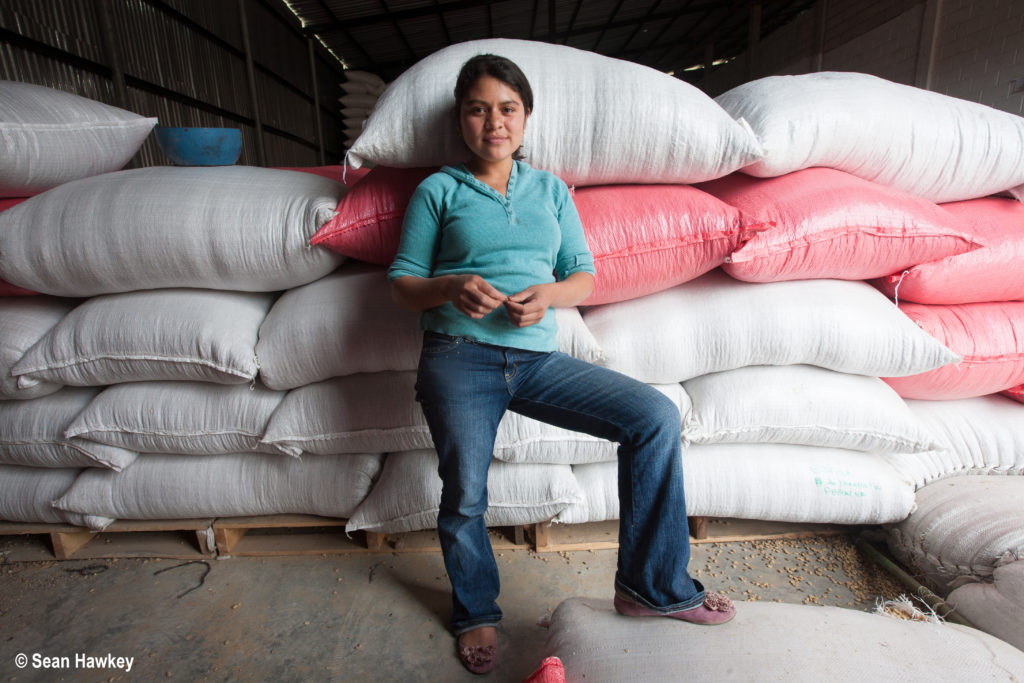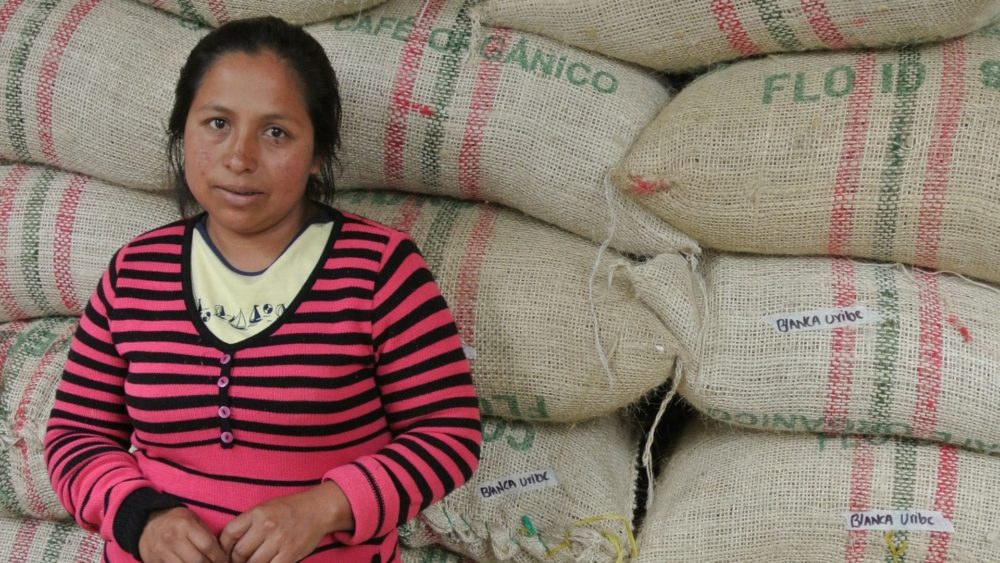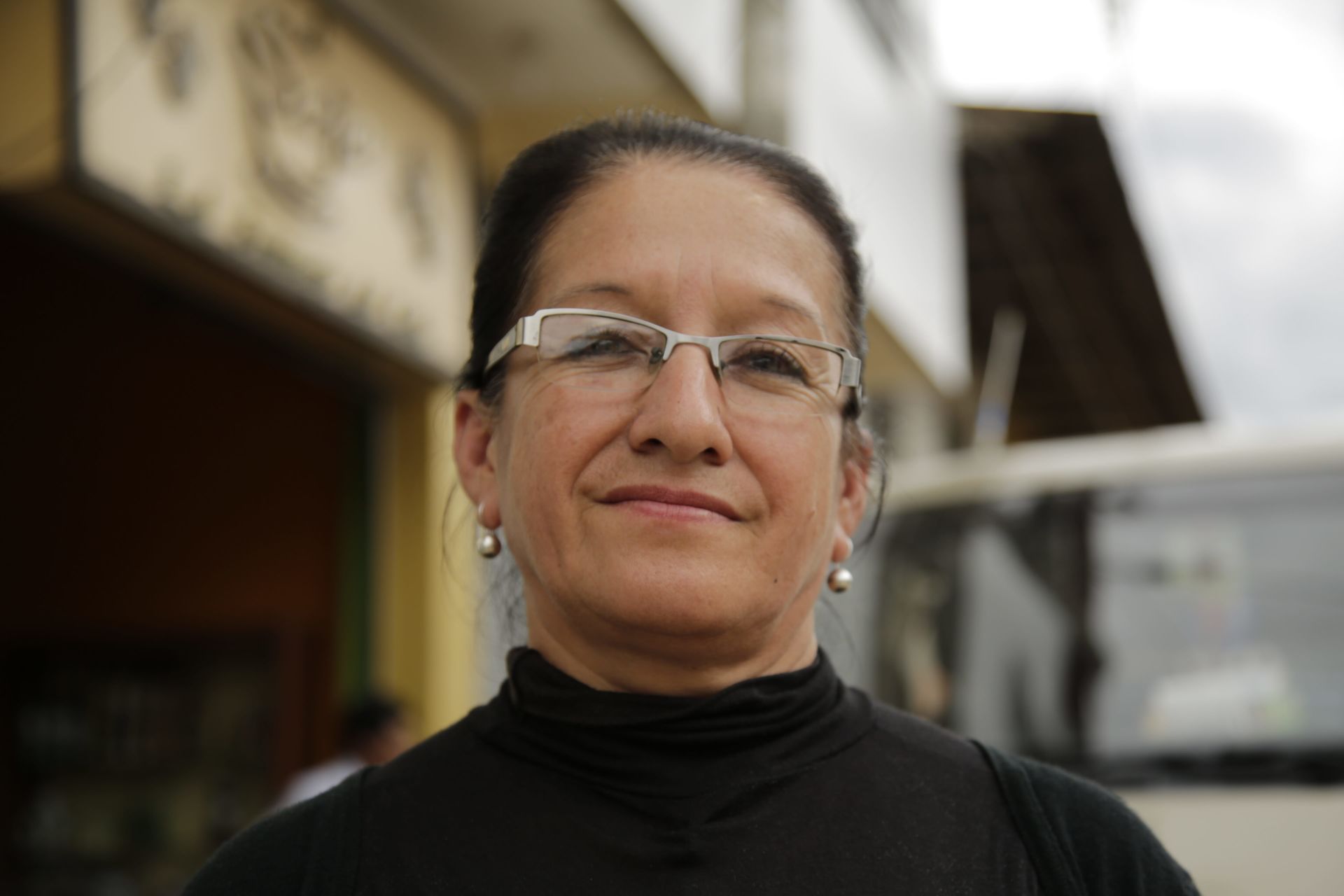Impact measurement and management are at the heart of Root Capital’s work, helping us optimize our efforts to impact and transform rural communities. By measuring the impact our services are having on client farmers compared to non-members, we unlock critical data that confirm results and drive decision making about where and how we should best deploy limited resources.
Case in point: We recently conducted four deep-dive evaluations with client agricultural businesses in the Democratic Republic of Congo, Indonesia, Kenya, and Peru. Through these studies, we sought to identify how affiliation with a Root Capital client influences farmer livelihoods. We also looked at whether female farmers have different access to critical services than men and how that might affect their participation in agricultural value chains. What follows is a summary of the first of these studies, focused on cocoa cooperatives in Peru.
The Case of Peru: How the Study was Done
In the fall of 2018, we collected data from members of three Peruvian cocoa cooperatives that receive financing from Root Capital. Two have been our clients since 2014, and the third since 2006. All three have received not only financing from Root Capital, but also financial and business advisory services. Altogether, we surveyed 300 farmers affiliated with these businesses, who formed our study’s treatment group. We also surveyed a comparison group of 250 cocoa farmers in nearby communities who were not affiliated with one of our client businesses.
Related topics: COVID-19: How Impact Investors Switched to Remote Work – Evaluating Impact in Rural Communities – Guiding investments in climate-smart livestock systems
We asked these farmers about their household makeup, cocoa production, income, quality of life, and the services and benefits they receive from their cocoa buyers. We also asked study respondents to answer retrospective questions—for client farmers, about their lives before they joined their cooperatives, and for comparison farmers, about their circumstances five years ago. We then matched treatment and comparison farmers on this retrospective data to generate a sample of respondents that was statistically comparable prior to the intervention.
This methodology isn’t perfect: retrospective questions are difficult to answer and we may not have accounted for all characteristics that could affect the likelihood of cooperative membership or a farmers’ income or production potential in our analysis. However, we chose this method because it’s cost-effective, suits our business model, and allows us to approximate the process of randomization—the gold standard for accuracy in impact evaluation—and reduce bias in our study results.
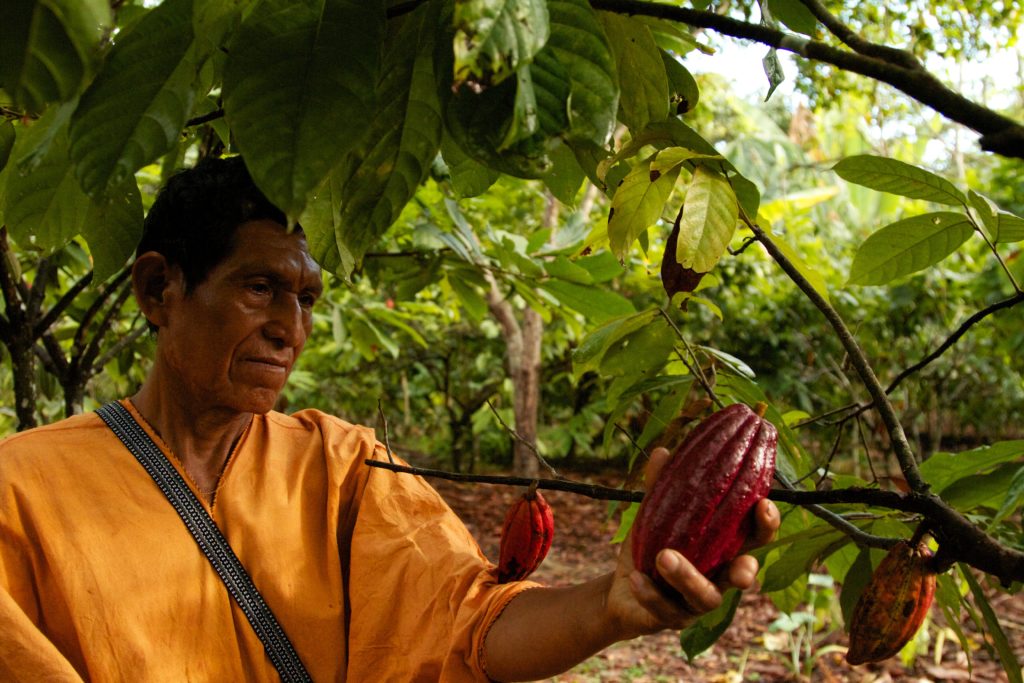
Key Findings on Farmer Livelihoods: Cocoa Cooperative Farmers vs. Non-members
Our findings indicated that cocoa farmers affiliated with Root Capital clients earned 29% more income from cocoa production than non-affiliated farmers in 2018.
This result was driven in part by price, as two of the three clients in the study offered higher prices than those available on the local market. But the most significant driver of increased income among client farmers appeared to be increased production. Members of all three clients, on average, maintained more trees, harvested more, and sold more than did non-affiliated farmers.
We also found that client farmers were more likely to access a variety of key farm services than non-members. Member-farmers were 43 percentage points more likely than non-members to have received a visit from a cocoa technician in the year prior to data collection. They were also 20 percentage points more likely to have received subsidized or easily accessible inputs, such as seeds or fertilizer.
Both services are critical to reducing farm costs and improving productivity. Members of Root Capital clients were also more likely to receive social and environmental support from their cooperatives than were comparison farmers. These services—such as alternative income generation programs—demonstrate the holistic commitment of Root Capital clients to their members beyond crop purchases.
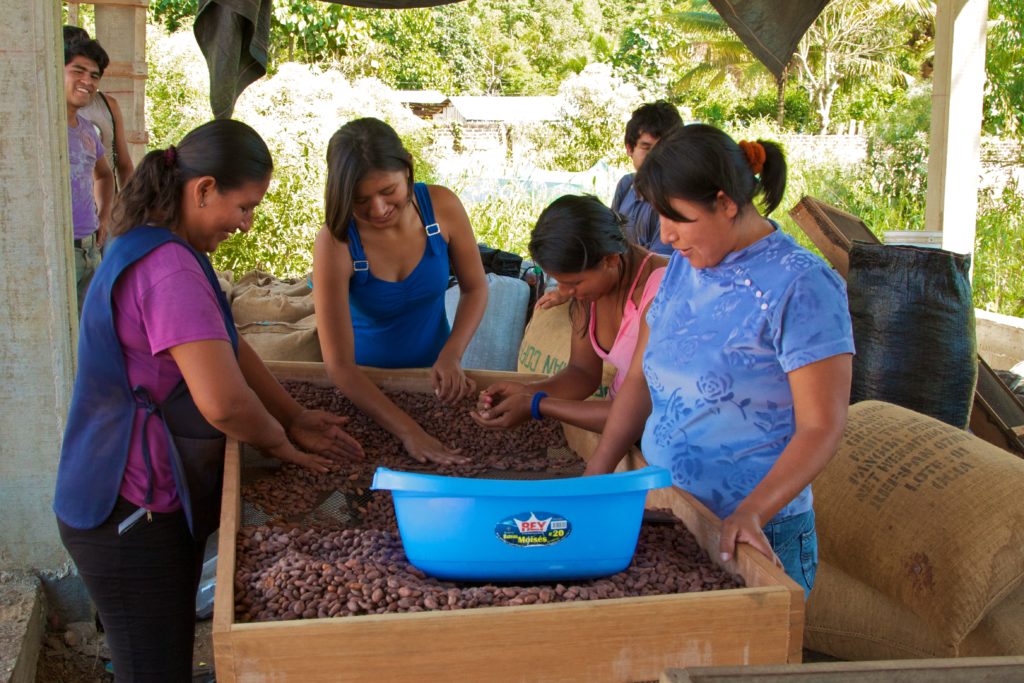
Leveling the Playing Field for Women
One of the most exciting findings from our study was the striking association between cooperative membership, gender, and access to key farm services.
In our sample, non-member women were significantly less likely than non-member men to receive on-farm technical and input assistance. But women respondents affiliated with a Root Capital cooperative reported receiving both of these services at the same rate as men, and much higher than non-member women, with 75% of all cooperative members receiving technical assistance visits and 28% of all members receiving input assistance. The cooperatives we studied appear to level the playing field for rural women when it comes to productivity enhancement and cost-effective farm services.
In focus groups, female members confirmed the role of cooperative services in improving their farm knowledge and household decision-making skills. Many respondents cited these services as their primary motivation for joining the cooperative. The result: They reported having more control over their businesses, better farming skills, and more freedom.
This isn’t to say that women don’t face challenges in these communities. Female cooperative members were less likely to own land than men and did not participate fully in farm management.
One particularly concerning barrier is how cooperatives determine who can become a member. Membership is most commonly offered to one member of a household—typically a man. Wives of cooperative members, even if they participate equitably in on-farm tasks, can’t be members themselves if their husband holds the membership. As one respondent noted, this leaves many women with neither “a voice nor vote” in cooperative decision making.
Women in this study also reported performing 2.5 hours more of household and childcare work per day than men—that’s more than two extra eight-hour workdays per week. These results held for both members and non-members.
As a result of their domestic responsibilities, women may be unable to participate in some farm or cooperative activities—and, if they do, they’re left with little time for rest or personal care. It’s clear that more work is needed to increase men’s household responsibilities in farming communities as women take on increasingly complex roles in agricultural value chains.
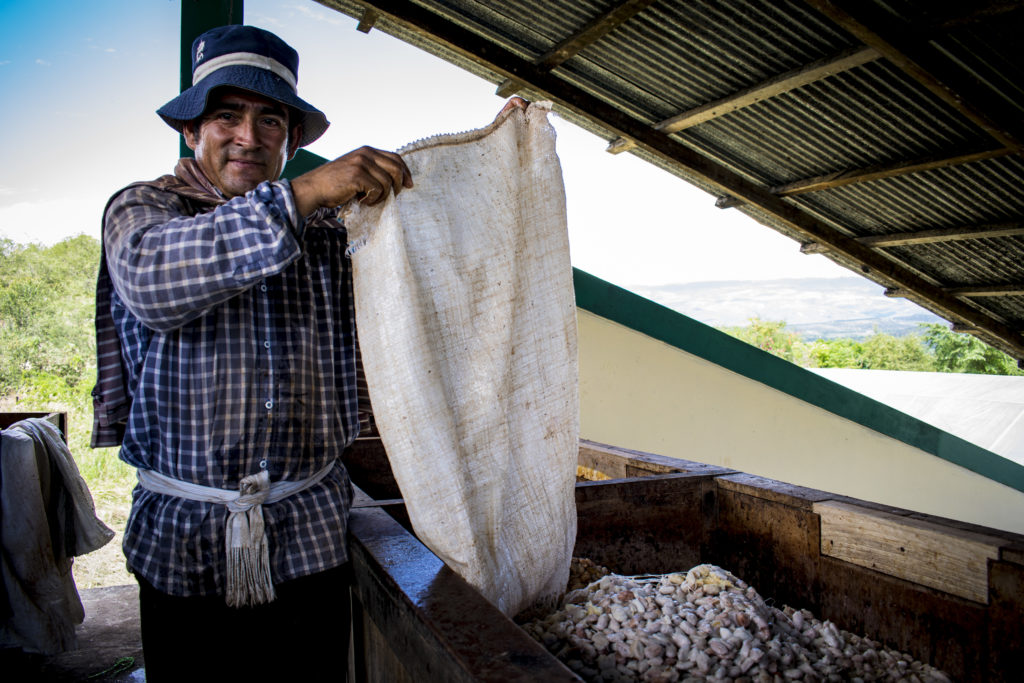
What’s Next?
Overall, this study provided a promising validation of Root Capital’s theory of change. Our client businesses offer a variety of services to members that appear to improve crop incomes and support gender inclusion. As one of the few lenders willing to serve these remote agricultural enterprises, we are helping drive that impact.
The study also highlighted several key areas that deserve a closer look.
While members of Root Capital clients reported higher income from cocoa production, we found ambiguous results on total household income. Additionally, we found that members reported higher levels of food insecurity than non-members, even though members’ farms are more diversified than those of non-members. More research is needed to understand these findings, and to determine how we can better support our clients and their farmer-members facing food insecurity and other challenges.
We take heart from the results of this study, particularly the notion that our clients can serve as an equalizing force for women in farming communities.
A more detailed look at our methodology and the full study findings are available in our report. The remaining three studies in this series—of coffee cooperatives in the Democratic Republic of the Congo and Indonesia, and macadamia nut processors in Kenya—will be released in the Publications section of our website over the coming months.
About the author: Isabel DoCampo is a Senior Impact Analyst at Root Capital
EDITOR’S NOTE: The opinions expressed here by Impakter.com columnists are their own, not those of Impakter.com. Photo Credit: Root Capital


